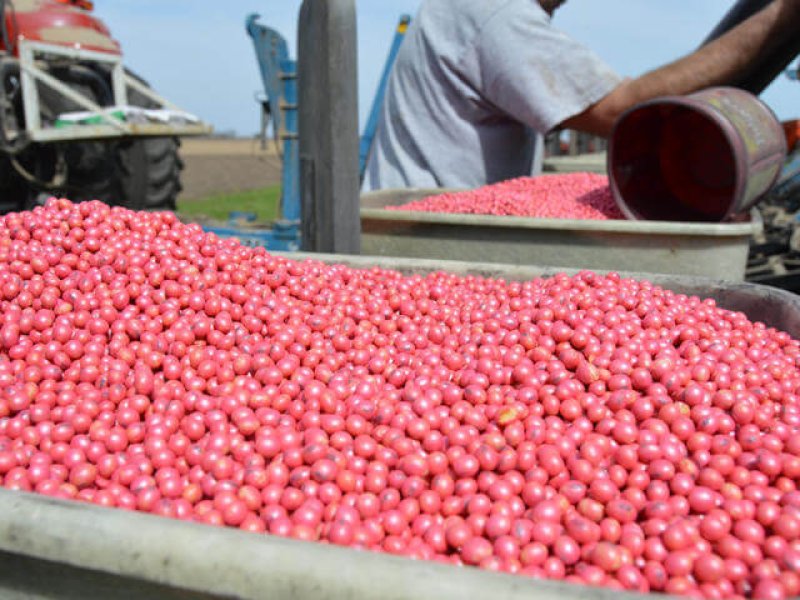Ever year, farmers in the United States devote at least 80 million acres, a combined landmass three-quarters the size of California, to soybeans. At least half the crop comes from proprietary seeds coated with insecticides and fungicides. These chemicals infuse the plants as they emerge, protecting them from damage by insects and fungal pathogens.
At least, that’s the pitch to farmers: Spend extra for treated seeds, and enjoy higher crop yields in return. But according to a new meta-analysis of past research from nearly two dozen scientists at top public agriculture-research universities—the bargain isn’t paying off.
[Editor’s note: To learn more, read Neonicotinoid seed treatments: Effective crop protectants—or unnecessary, with potential collateral damage to bees?]
And while economic gains for farmers are vanishingly tiny, at best, the potential ecological risks are high, the authors note. The insecticides in the treatments are called neonicotinoids, which have been banned in Europe for their potential harmful effects on pollinators. A “growing body of research” suggests these chemicals have a “host of negative effects” on beneficial organisms, the paper notes, including honey bees, wild bees, monarch butterflies, birds, and terrestrial and aquatic invertebrates.
Read full, original article: A Big New Study Finds Bee-Killing Pesticides Aren’t Even Worth it for Soybean Farmers































